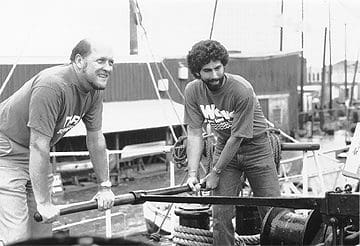by Steve Lee, APR
In short, yes. You need a mentor!
Good mentors are like unicorns, magical. Ask the CCPA faculty and staff, and many will tell you of their love and respect for their mentors. There is a good reason or a thousand reasons why you need a mentor.

Mentors play an important role in personal and professional development because they provide guidance, support, advice, and encouragement. Mentors can help individuals navigate challenges, set and achieve goals, and grow in their careers. They also serve as role models and help individuals gain a deeper understanding of their strengths, weaknesses, and values. Having a mentor can increase confidence, foster new relationships and networks, and provide a sense of direction and purpose.
Searching for a mentor? Look no further; we are here to share tips and tricks for finding the perfect person to turn to in times of need. No matter your age or what stage of life you are in, a mentor can be beneficial in several ways. Here are our suggestions for those looking to find their perfect mentor match.
What is a Mentor?
For those who may not know, a mentor is defined as an experienced and trusted adviser. While the role of a mentor is fluid based on the changing needs of the mentee, a mentor’s overall goal is to provide guidance, motivation, and various forms of support to lead the mentee down the path to success. Whether a mentee is in need of career exploration or setting essential goals for life, a mentor is a valuable resource every step of the way.
Why You Need a Mentor

Even for those who feel they may have it all figured out, there is always room for an outside perspective. You may benefit from having a mentor for many reasons:
- Professional development: A mentor can provide you with guidance and advice as you navigate your career and work towards your professional goals.
- Skills development: Your mentor can help you identify areas where you need to improve and provide the resources and support you need to grow and develop your skills.
- Network building: Mentors often have extensive networks and can introduce you to valuable contacts and resources.
- Personal growth: A mentor can help you reflect on your experiences and identify patterns and themes in your personal and professional lives, allowing you to gain a deeper understanding of yourself and what you want out of life.
- Career advancement: Mentors can help you identify and pursue opportunities for advancement and growth in your career.
- Confidence boost: Having a mentor who believes in you and your abilities can boost your confidence and help you overcome self-doubt and obstacles.
A mentor can provide valuable outside insight, guidance, and support as you navigate your personal and professional journey. Your observations about yourself are often skewed, and an honest mentor can help you see a different perspective.
Having a mentor allows you to form relationships with a superior you can trust. You may surprise yourself and be thrilled by the results that accompany mentorship programs. Finding a mentor is a personal experience, and you never know what door they could open next.
Finding a Mentor
Finding a mentor in communication is all about your network. If you’re a junior or senior, you should now or soon shift your network building to focus on professionals in the field. Use your professors, parents, friends, relatives — anyone who might know working communication pros and ask to be introduced.
A Quick Checklist
Here are some questions or tips for finding a great mentor.
- Agency/Corporate/Government/Nonprofit — try to match your mentor’s background to the area of work you plan to join.
- Location — ideally, find a mentor in the area where you intend to move after graduation.
- Specialty — again, try to find a mentor in the industry you will be entering.
- Personality — do you respect someone who is stern and all business, fun first and work later, or flexible and patient. Match your needs.
Whomever you target as your possible mentor, look them up on LinkedIn and connect. Buy them coffee or lunch, and see if you click. if all goes well, ask them if they have the time and inclination to mentor you. I have numerous mentees, some of which became my mentees naturally, without asking. That’s fine as long as it feels right for you and your mentor.
Then What?
Treat your mentor with the utmost respect. Listen to them even when you might disagree. Good mentors push you to do things you don’t think you can. Let them teach you professional ways. That’s something you can’t find in textbooks but learn from experience. Let your mentor’s experiences guide you.
So, what’s stopping you? Share your mentorship experiences below.
- Welcome Home - 08/25/2025
- Welcome Back - 01/19/2025
- Meadows Diploma Ceremony 2024 - 05/12/2024

